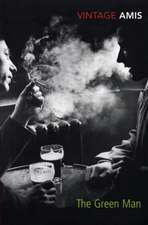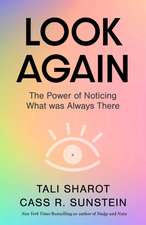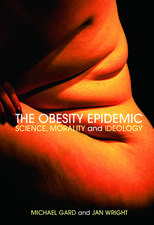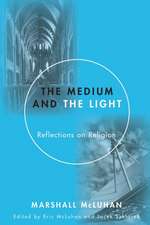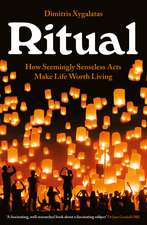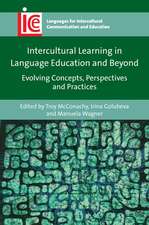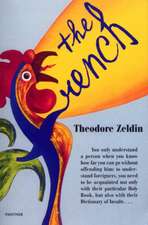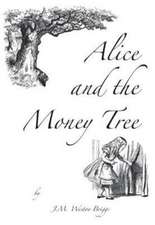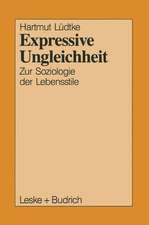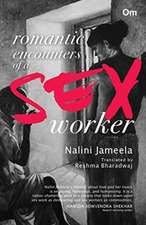Cultural Capital and Creative Communication: (Anti-)Modern and (Non-)Eurocentric Perspectives: Routledge Studies in Social and Political Thought
Autor Oana Șerbanen Limba Engleză Hardback – 25 ian 2023
This book explores the notion of cultural capital, offering insights into its evolution and definitions, as well as the relationship between cultural, social and human capital, the distinctions between capital and capitalism, and the conflicts that exist among the various critical theories that engage with Bourdieu's thought.
| Toate formatele și edițiile | Preț | Express |
|---|---|---|
| Paperback (1) | 152.43 lei 3-5 săpt. | +6.42 lei 6-10 zile |
| Taylor & Francis – 26 aug 2024 | 152.43 lei 3-5 săpt. | +6.42 lei 6-10 zile |
| Hardback (1) | 346.57 lei 24 ore | |
| Taylor & Francis – 25 ian 2023 | 346.57 lei 24 ore |
Din seria Routledge Studies in Social and Political Thought
-
 Preț: 152.43 lei
Preț: 152.43 lei -
 Preț: 296.65 lei
Preț: 296.65 lei -
 Preț: 311.70 lei
Preț: 311.70 lei -
 Preț: 310.96 lei
Preț: 310.96 lei -
 Preț: 347.93 lei
Preț: 347.93 lei -
 Preț: 310.41 lei
Preț: 310.41 lei -
 Preț: 303.89 lei
Preț: 303.89 lei -
 Preț: 319.08 lei
Preț: 319.08 lei -
 Preț: 333.32 lei
Preț: 333.32 lei -
 Preț: 309.82 lei
Preț: 309.82 lei -
 Preț: 287.68 lei
Preț: 287.68 lei -
 Preț: 324.20 lei
Preț: 324.20 lei -
 Preț: 389.38 lei
Preț: 389.38 lei -
 Preț: 229.38 lei
Preț: 229.38 lei -
 Preț: 310.29 lei
Preț: 310.29 lei -
 Preț: 311.41 lei
Preț: 311.41 lei -
 Preț: 318.31 lei
Preț: 318.31 lei -
 Preț: 216.07 lei
Preț: 216.07 lei -
 Preț: 354.07 lei
Preț: 354.07 lei -
 Preț: 279.47 lei
Preț: 279.47 lei -
 Preț: 347.26 lei
Preț: 347.26 lei -
 Preț: 402.11 lei
Preț: 402.11 lei - 18%
 Preț: 1110.47 lei
Preț: 1110.47 lei - 18%
 Preț: 1055.51 lei
Preț: 1055.51 lei - 18%
 Preț: 1058.43 lei
Preț: 1058.43 lei - 18%
 Preț: 1005.73 lei
Preț: 1005.73 lei -
 Preț: 409.73 lei
Preț: 409.73 lei - 18%
 Preț: 1061.84 lei
Preț: 1061.84 lei - 18%
 Preț: 1061.22 lei
Preț: 1061.22 lei - 25%
 Preț: 544.67 lei
Preț: 544.67 lei - 18%
 Preț: 1215.71 lei
Preț: 1215.71 lei - 18%
 Preț: 998.71 lei
Preț: 998.71 lei - 18%
 Preț: 1109.99 lei
Preț: 1109.99 lei -
 Preț: 488.71 lei
Preț: 488.71 lei - 30%
 Preț: 847.73 lei
Preț: 847.73 lei -
 Preț: 416.12 lei
Preț: 416.12 lei - 18%
 Preț: 1054.75 lei
Preț: 1054.75 lei - 28%
 Preț: 769.72 lei
Preț: 769.72 lei - 18%
 Preț: 1059.84 lei
Preț: 1059.84 lei -
 Preț: 489.99 lei
Preț: 489.99 lei - 18%
 Preț: 1062.31 lei
Preț: 1062.31 lei - 18%
 Preț: 1108.42 lei
Preț: 1108.42 lei -
 Preț: 382.65 lei
Preț: 382.65 lei - 42%
 Preț: 181.06 lei
Preț: 181.06 lei - 28%
 Preț: 822.36 lei
Preț: 822.36 lei
Preț: 346.57 lei
Nou
66.32€ • 72.26$ • 55.88£
Carte în stoc
Livrare din stoc 13 martie
Specificații
ISBN-10: 1032360135
Pagini: 90
Ilustrații: 22 Line drawings, black and white; 22 Illustrations, black and white
Dimensiuni: 138 x 216 x 12 mm
Greutate: 0.21 kg
Ediția:1
Editura: Taylor & Francis
Colecția Routledge
Seria Routledge Studies in Social and Political Thought
Locul publicării:Oxford, United Kingdom
Recenzii
François Ruegg, Professor Emeritus, Universities of Fribourg and Bucharest
"This exciting new course book on Cultural Capital and Creative Communication is a timely and useful addition to the field for scholars and students alike. Oana Șerban provides a wide-ranging and stimulating epistemic overview of the interrelated concepts of cultural capital, capital, and art, focusing on the work of key thinkers evolving in the political, intellectual and artistic context of 20th century Europe."
Alex Frame, Associate Professor, University of Burgundy
"This welcomed book, authored by Oana Şerban, has the merit of being both a manual in the usual sense of the term, that of a useful pedagogical tool for students to approach an extremely complex field of our cultural reality (and not only), but also a scientific, passionate investigation of the current state of the art in this domain. The openings, temptations and risks of the theoretical approach that will inevitably captivate the reader appear as soon as we notice that we deal with a book that evaluates the dynamics of cultural capital, and the manner particularly dramatic and actual of entangling with the economic and the cultural spheres in all layers of our society and life. About the balance, more or less successful, but inevitable today, between cultural capital and the culture of capital, you will find more in the pages of this volume."
Viorel Vizureanu, Professor, University of Bucharest
Notă biografică
Oana ¿erban teaches Modern Philosophy and Aesthetics at the University of Bucharest, Romania, as titular professor of the Department of Practical Philosophy and History of Philosophy and of the UNESCO Chair in Interculturality, Good Governance and Sustainable Development. She is the Executive Director of CCIIF ¿ The Research Center for the History and Circulation of Philosophical Ideas (UB). She has authored Artistic Capitalism (2016) and After Thomas Kuhn. The Structure of Aesthetic Revolutions (2022) and co-edited different volumes of philosophy, culture and aesthetics. Around 30 academic articles and studies reflect her interest in the following main areas of expertise: Aesthetics, Modern and Political Philosophy, History of Philosophy, Biopolitics, History of Art, Cultural Heritage. Currently, she is exploring the biopolitical potential of modern art, in her latest study, published in the volume Philosophy and Film: Bridging Divides (ed. Christina Rawls, Diana Neiva, Steven Gouveia) (Routledge, 2019).
Cuprins
Introduction; 1. Propaedeutic Aspects: Cultural Capital and Its Familiarity With the Legitimate Culture Within a Society; 2. Capital and Capitalism: Before and After Cultural Determinations; 3. Eurocentric Attitudes Towards Modernity and Capital(ism); 4. The Role of Arts in Supporting the Development of Cultural Capital and Creative Communication; 5. Why Is the De-Aestheticization of Art a Phenomenon Specific to Artistic Capitalism?; 6. Final Evaluation
Descriere
This book explores the notion of cultural capital, offering insights into its evolution and definitions, as well as the relationship between cultural, social and human capital, the distinctions between capital and capitalism, and the conflicts that exist among the various critical theories that engage with Bourdieu's thought.

